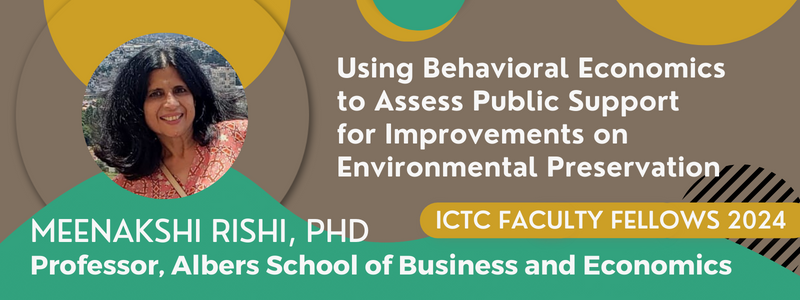Using Behavioral Economics to Assess Public Support for Improvements on Environmental Preservation
Posted: April 30, 2024
 Thursday, May 16, 12:30 p.m.
Thursday, May 16, 12:30 p.m.
Pigott 205
Lunch included
Please RSVP to ICTC@seattleu.edu
"Environmental impact assessment should not come after the drawing up of a business proposition or the proposal of a particular policy, plan or programme."
- Laudato Si': 183
Join ICTC for a faculty fellowship research presentation with Dr. Meena Rishi of Albers.
Laudato Si' underlines the intertwined relationship between human welfare and the state of the environment. Traditional approaches to sustainability often neglect this interconnectedness, leading to fragmented solutions that fail to address root causes. Environmental impact assessment methodologies play a crucial role in evaluating the consequences of human actions on the environment. These assessments are vital for informing policy decisions, project evaluations, and legal cases involving environmental damages. Air quality is an example- without an assessment of the value individuals place on clean air, insufficient funds are being allocated to deal with air pollution and the air-quality problems have not been resolved. Thus, impact assessment methodologies play a crucial role in valuing the environment to evaluate the consequences of environmental policies.
This project focuses on the use of the Willingness to Pay (WTP) method to assess the value humans place on environmental preservation such as clean air initiatives. WTP estimates can provide guidelines for budgetary allocations for environmental policies.
